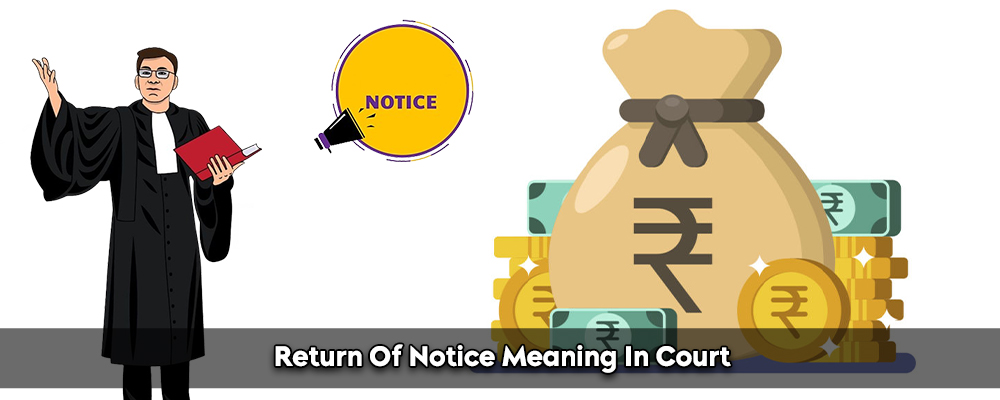Fair representation and due process are the cornerstones of the judicial system. Making sure these rules are followed requires proper notice to be served. A formal communication known as a notice notifies the parties of a legal procedure of the acts, demands, or claims made against them. In the context of judicial procedures, the return of notice is quite important.
Need A Legal Advice
The internet is not a lawyer and neither are you. Talk to a real lawyer about your legal issue

Notice in Legal Proceedings: About
In order to guarantee that parties are informed of any legal action taken against them, notice is a fundamental right. It enables people to defend themselves, take part in the processes, and protect their rights. An inequitable and opaque legal system would result from improper notice.
Actual Notice
Whenever a party is made explicitly aware of legal actions, this happens. It might be via direct communication methods like phone calls or in-person interactions.
Constructive Notice
This kind of notice is inferred or assumed rather than given to the party directly. Constructive notice could include things like placing a notice in a public area or printing it in a newspaper.
Return of Notice: About
One crucial phase in the notice procedure is the return of notice. It alludes to the formal affirmation that the notice has been served by the individual assigned to do so. This confirmation describes the specifics of the manner in which the notice was served.
It typically takes the form of some sort of written declaration. A record of the service is subsequently created when the return of notice is submitted to the court.
Return of Notice: Its Importance
- In order to establish the court’s authority over the parties involved, the notification must be returned. The power of the court to hear and rule on a case is known as jurisdiction. When notice is properly served, the court’s jurisdiction over the person being sued is established, giving the proceedings legal standing.
- The idea of due process is intrinsically linked to the return of notice. All parties must have notice and a chance to be heard in order for due process to be followed. The fact that the notice was returned reinforces the impartiality of the judicial proceedings by providing proof that due process was actually followed.
- A default judgment, in which the court finds in favor of the party bringing the action because the other party did not reply, may arise from improper notice serving. By guaranteeing that parties are aware of the legal measures being taken against them, the return of notice serves as protection against default judgments.
- A legally binding record of the manner and time the notice was delivered is created by the notice’s return. This documentation is useful should disagreements emerge regarding the sufficiency of the service. It offers an unambiguous record of the actions done to alert the relevant persons.
Return of Notice: Challenges and Issues Faced
- Notice may occasionally be given incorrectly or insufficiently. Errors in the delivery procedure, such as delivering the wrong person or not giving enough information, may be the cause of this. Legal processes may be delayed and complicated if the return of notice is contested.
- Anyone entrusted with serving notice must submit fraudulent returns, pretending that notice was served correctly. This immoral behavior jeopardizes the integrity of the justice system and may have dire repercussions for those engaged.
- Parties may contest the court’s jurisdiction in the event that the notice return is defective. This might force a review of the notice procedure and have an effect on the legality of the case as a whole.
The return of notice is a vital component in the complex web of judicial proceedings that upholds the rights to due process and equitable representation. It acts as protection against defaulted decisions as well as challenges to jurisdiction in addition to verifying service. Maintaining the credibility of the judicial system and making sure that justice is administered fairly and transparently need an understanding of the subtleties of notice and its correct return.
One can talk to a lawyer from Lead India for any kind of legal support. In India, free legal advice online can be obtained at Lead India. Along with receiving free legal advice online, one can also ask questions to the experts online free through Lead India.





 Talk to a Lawyer
Talk to a Lawyer